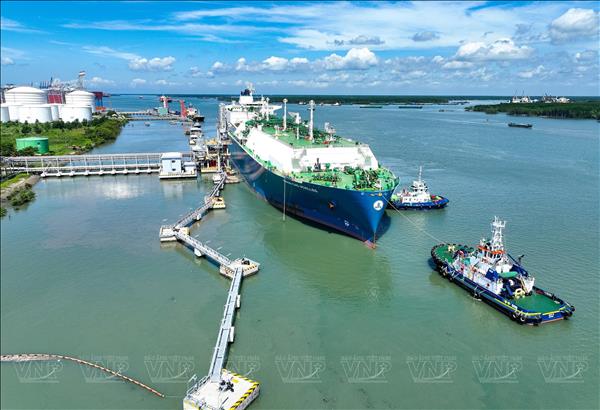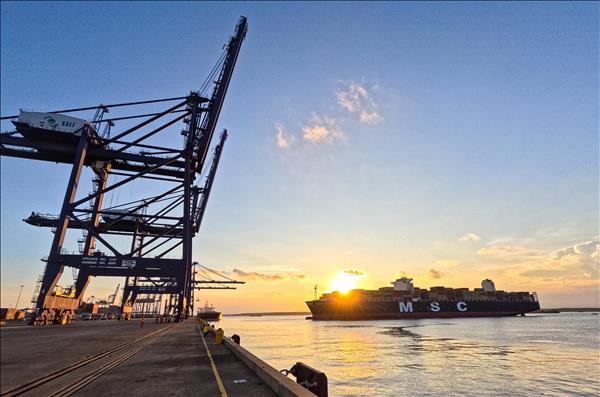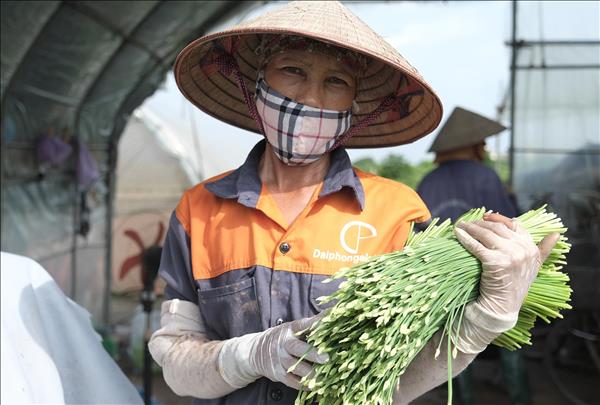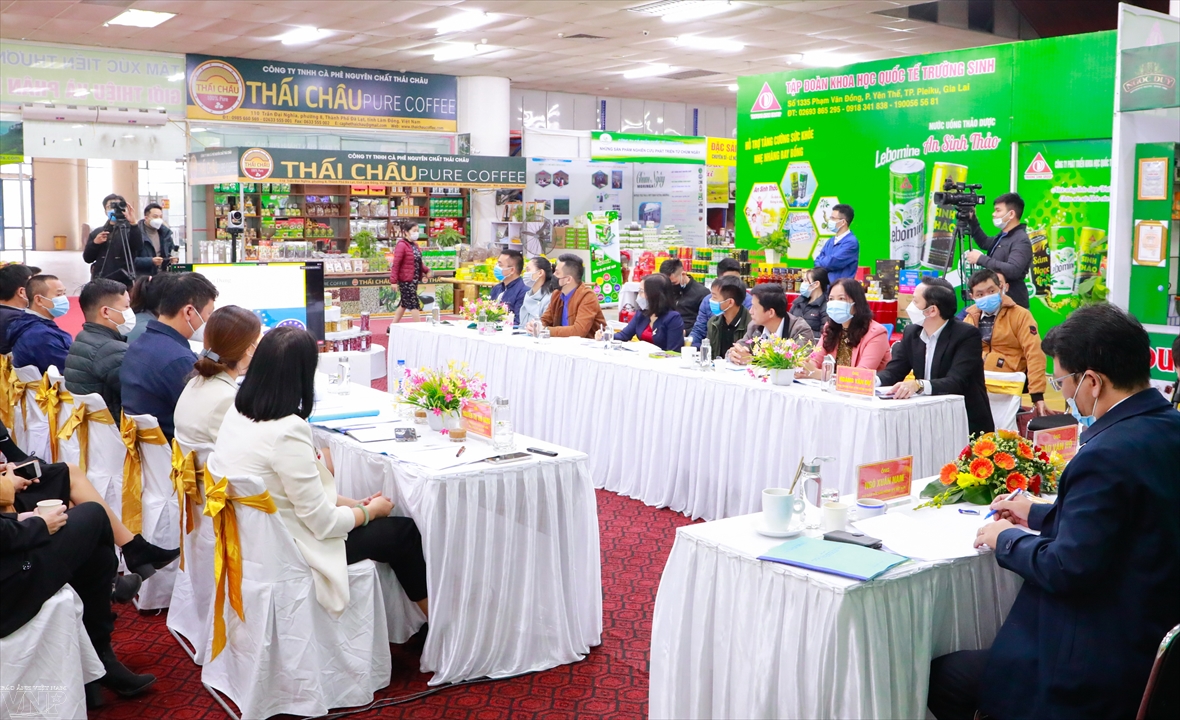Besides opportunities when joining TPP and new-generation FTAs, Vietnam will face many challenges, said Prime Minister Nguyen Tan Dung. Fierce competition will take place in not only the markets of countries signing TPP but also in the domestic market at three levels, products, businesses and state, especially in institutional quality and the business environment.
Under the pressure of competition, enterprises with poor performances in transformation and restructuring may stand on the verge of dispersal or bankruptcy. Also, a segment of labourers will face unemployment. Agricultural sector and farmers will be the most vulnerable. The income gap will be widened if the rapid, sustainable development strategy produces no effective results and people do not benefit from growth outcomes.
Another obstacle lies with the process of effectuation, from completing the legal system to personnel training and improving the capacity of officials, as well as technical and legal experts. The Prime Minister underscored the need for the Vietnam General Confederation of Labour and the entire political system to gear up for new requirements on employment and trade union affairs.
To grasp opportunities and overcome difficulties, the Prime Minister said that the current pressing requirement is to improve the competitiveness of the economy and clearly define the role and actions of subjects in effectuation that is of decisive significance.
According to the leader, businesses are the subject which determines the micro competitiveness and reflects the strength as well as the competitiveness of the economy. He suggested the business sector be courageous and partake in the competition while taking the initiative in employing synchronous and drastic measures to raise the competitiveness of its goods and services in both domestic and foreign markets.
However, businesses cannot determine everything all by themselves but must operate within the institutional framework and business climate set by the State that totally depends on the State. Therefore, the State has to do well its functions of creating the development, especially to stabilise the macro-economy, build the legal system and organise the management apparatus in order to create an open, transparent business environment and ensure business freedom and fair competition
According to Prime Minister Nguyen Tan Dung, Vietnam must continue and rapidly complete its institution and legal frameworks to meet the requirements of the market economy, international integration and commitments in FTAs, especially in new-generation FTAs with a spirit of comprehensive and synchronous renovation of both the economy and politics.
Because of requirements by TPP as well as the Vietnam-EU FTA, state-run businesses must be open and transparent and fairly compete with businesses of other economic sectors, so it needs to boost the process of restructuring and increasing the effectiveness of state-run businesses while encouraging the strong development of enterprises in other economic sectors, especially in the private sector, thereby serving an impetus for improving the competitiveness and self-reliance of the economy.
Concluding his article, the Prime Minister emphasised that to ensure success in international integration and the efficient implementation of FTAs, especially the TPP and Vietnam-EU FTA, it is essential to have resolutions from the Party and National Assembly, and specific action plans from the Government, ministries and business community.
The Prime Minister also emphasised the importance of doing communication work effectively in order to create a consensus in consciousness and unity in action as well as making efforts to increase national competitiveness so as to develop the economy quickly and sustainably.
Under the pressure of competition, enterprises with poor performances in transformation and restructuring may stand on the verge of dispersal or bankruptcy. Also, a segment of labourers will face unemployment. Agricultural sector and farmers will be the most vulnerable. The income gap will be widened if the rapid, sustainable development strategy produces no effective results and people do not benefit from growth outcomes.
Another obstacle lies with the process of effectuation, from completing the legal system to personnel training and improving the capacity of officials, as well as technical and legal experts. The Prime Minister underscored the need for the Vietnam General Confederation of Labour and the entire political system to gear up for new requirements on employment and trade union affairs.
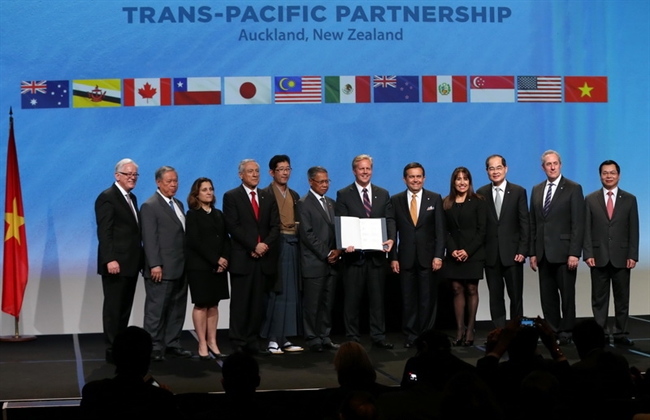 Ministers of Trade and Economics of 12 members of Trans-Pacific Partnership (TPP) attend the signing ceremony on the conclusion of discussion of the Trans-Pacific Partnership in New Zealand. Photo: AFP/VNA 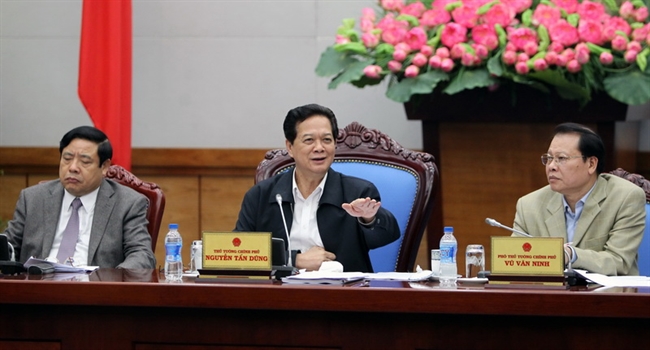 Prime Minister Nguyen Tan Dung chairs the meeting on restructuring of state-owned enterprises. Photo: Duc Tam/VNA 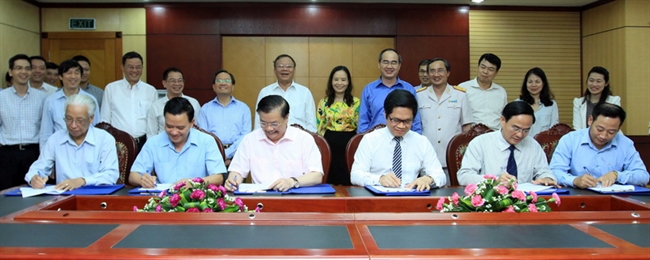 The signing ceremony among ministries and sectors on inspection of work on business environment improvement. Photo: An Dang/VNA 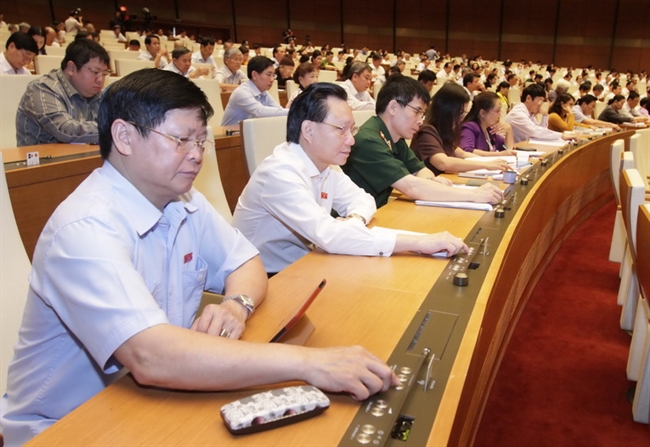 Vietnam needs to accelerate the building and completing of legal system and policies in order to create an open and transparent business environment. Photo: VNA |
To grasp opportunities and overcome difficulties, the Prime Minister said that the current pressing requirement is to improve the competitiveness of the economy and clearly define the role and actions of subjects in effectuation that is of decisive significance.
According to the leader, businesses are the subject which determines the micro competitiveness and reflects the strength as well as the competitiveness of the economy. He suggested the business sector be courageous and partake in the competition while taking the initiative in employing synchronous and drastic measures to raise the competitiveness of its goods and services in both domestic and foreign markets.
However, businesses cannot determine everything all by themselves but must operate within the institutional framework and business climate set by the State that totally depends on the State. Therefore, the State has to do well its functions of creating the development, especially to stabilise the macro-economy, build the legal system and organise the management apparatus in order to create an open, transparent business environment and ensure business freedom and fair competition
According to Prime Minister Nguyen Tan Dung, Vietnam must continue and rapidly complete its institution and legal frameworks to meet the requirements of the market economy, international integration and commitments in FTAs, especially in new-generation FTAs with a spirit of comprehensive and synchronous renovation of both the economy and politics.
Because of requirements by TPP as well as the Vietnam-EU FTA, state-run businesses must be open and transparent and fairly compete with businesses of other economic sectors, so it needs to boost the process of restructuring and increasing the effectiveness of state-run businesses while encouraging the strong development of enterprises in other economic sectors, especially in the private sector, thereby serving an impetus for improving the competitiveness and self-reliance of the economy.
 Vietnam hopes footwear and textile and garment sectors will benefit from TPP membership. Photo: Tran Viet/VNA  Agriculture is predicted to face a lot of difficulties without changes in production method to form large production areas and clean agriculture. Photo: Duy Khuong/VNA 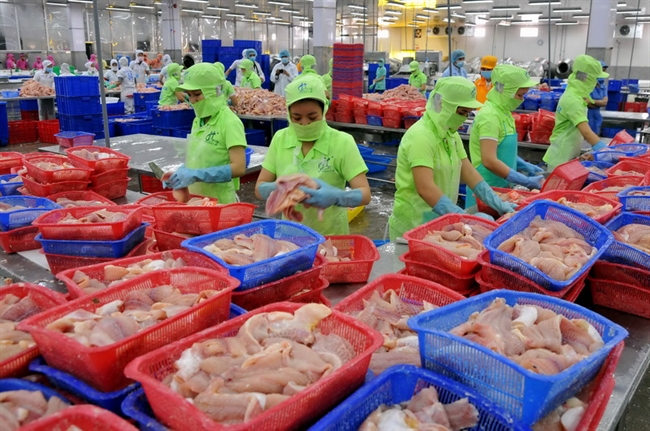 TPP is a major market accounting for over 40% of Vietnam’s seafood export value. Photo: An Hieu/VNA 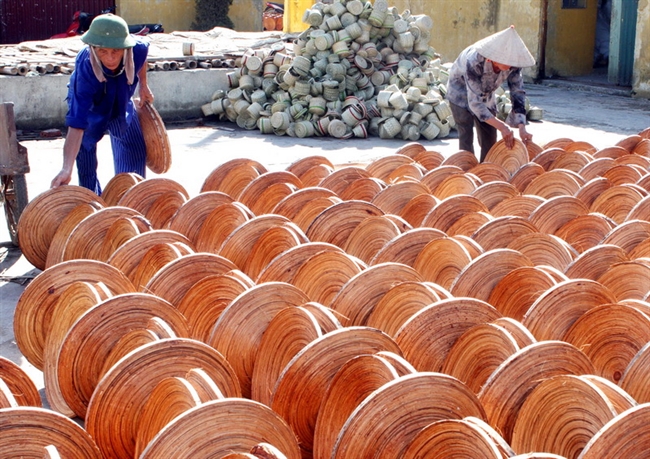 Encouraging private enterprises to develop and serve as an impetus to increase the economy’s competitiveness and autonomy. Photo: VNA 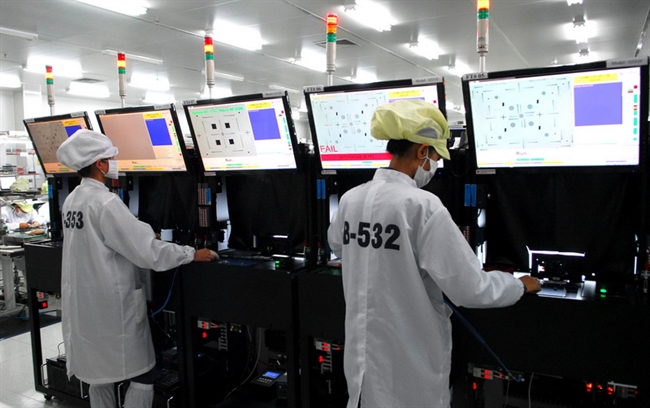 Joining TPP, Vietnamese enterprises need innovation in technology to quickly participate in the global production network and value chain. Photo: VNA |
Concluding his article, the Prime Minister emphasised that to ensure success in international integration and the efficient implementation of FTAs, especially the TPP and Vietnam-EU FTA, it is essential to have resolutions from the Party and National Assembly, and specific action plans from the Government, ministries and business community.
The Prime Minister also emphasised the importance of doing communication work effectively in order to create a consensus in consciousness and unity in action as well as making efforts to increase national competitiveness so as to develop the economy quickly and sustainably.
|
On February 4, 2016 the TPP agreement was signed by 12 member countries, including Australia, Brunei, Canada, Chile, Japan, Malaysia, Mexico, New Zealand, Peru, Singapore, the US and Vietnam which account for 40% of the global GDP (about 20 trillion dollars) and 30% of the global trade. Thus, together with TPP, FTA with the EU and FTAs signed or in negotiations, Vietnam will have free trade relationship with 55 countries, including 15 members from G20. |
By VNA/VNP

